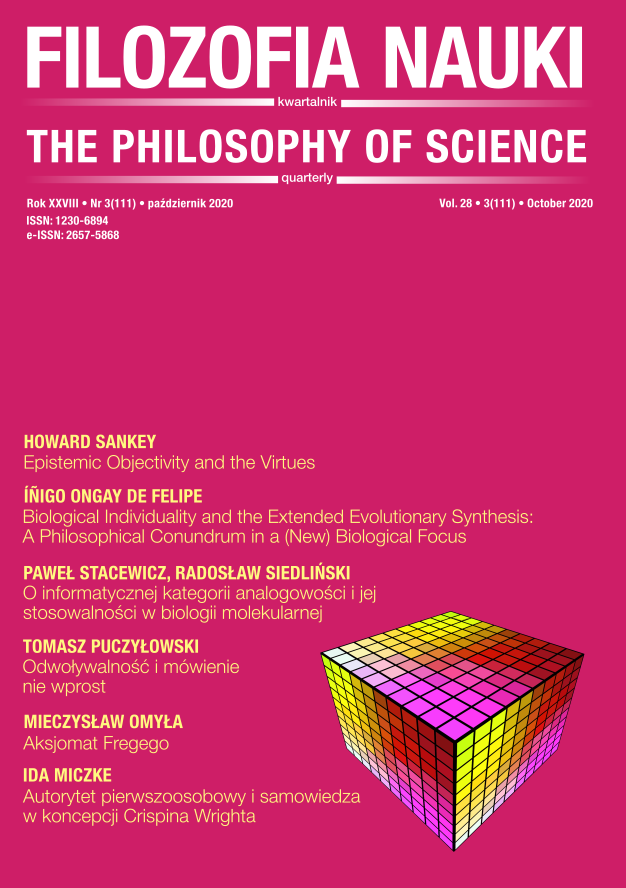Aksjomat Fregego
DOI:
https://doi.org/10.14394/filnau.2020.0017Słowa kluczowe:
Gottlob Frege, Fregean Axiom, truth-value, semantic correlate, identity connectiveAbstrakt
This paper discusses the semantic assumption that Roman Suszko called “the Fregean Axiom.” According to the Fregean Axiom, a logical sentence is a name of its logical value, which means that all true sentences are names of one and the same object called “Truth,” and — by analogy — all false sentences are names of one and the same object called “False.” The Fregean Axiom is at odds with the common-sense intuition. Usually, we think that a sentence is not a name but an
expression that states that a certain state of affairs occurs. The article analyzes the presuppositions underlying the axiom. The second part of the text discusses the consequences of either adoption or rejection of the axiom.
Bibliografia
Frege G. (1977b), Sens i znaczenie [w:] Pisma semantyczne, tłum. B. Wolniewicz, Warszawa: Państwowe Wydawnictwo Naukowe, 60-88.
Łukasiewicz J. (1921), Logika dwuwartościowa, „Przegląd Filozoficzny” 23, 189-205.
Omyła M. (1986), Zarys logiki niefregowskiej, Warszawa: Państwowe Wydawnictwo Naukowe.
Omyła M. (1992), The Fregean and Wittgensteinian Principles, „Journal of Symbolic Logic” (Abstracts) 57(1), 321-322.
Omyła M. (2001), Wyrażalność tez ontologicznych w języku logiki niefregowskiej, „Edukacja Filozoficzna” 32, 261-273.
Suszko R. (1957), Formalna teoria wartości logicznych I, „Studia Logica” 6, 144-236.
Suszko R. (1971), Identity Connective and Modality, „Studia Logica” 27, 7-39.
Suszko R. (1975), Abolition of the Fregean Axiom, „Lecture Notes in Mathematics” 453, 169-239.



















 Filozofia Nauki | ISSN 1230-6894 | e-ISSN 2657-5868
Filozofia Nauki | ISSN 1230-6894 | e-ISSN 2657-5868